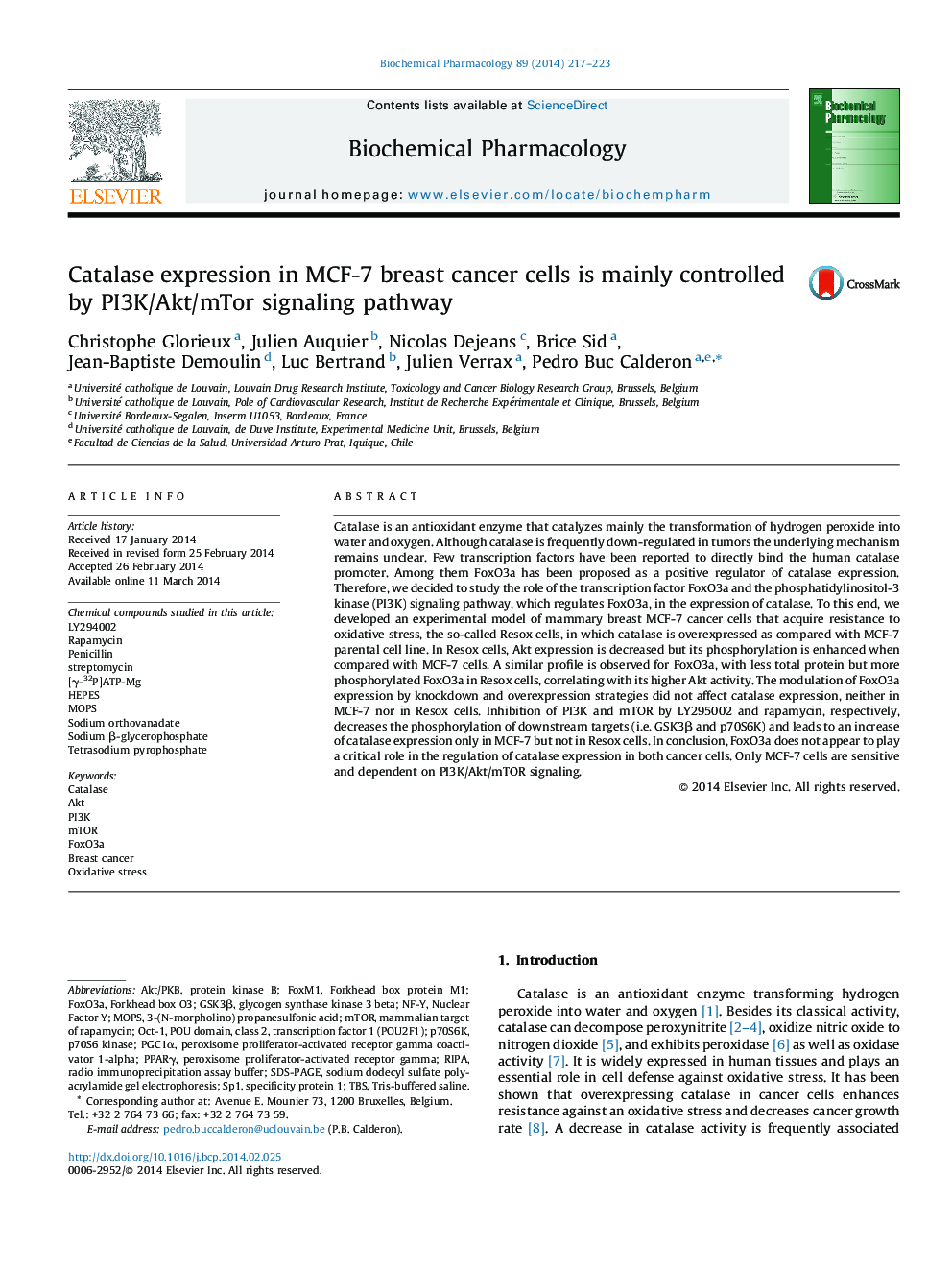| Article ID | Journal | Published Year | Pages | File Type |
|---|---|---|---|---|
| 2512265 | Biochemical Pharmacology | 2014 | 7 Pages |
Catalase is an antioxidant enzyme that catalyzes mainly the transformation of hydrogen peroxide into water and oxygen. Although catalase is frequently down-regulated in tumors the underlying mechanism remains unclear. Few transcription factors have been reported to directly bind the human catalase promoter. Among them FoxO3a has been proposed as a positive regulator of catalase expression. Therefore, we decided to study the role of the transcription factor FoxO3a and the phosphatidylinositol-3 kinase (PI3K) signaling pathway, which regulates FoxO3a, in the expression of catalase. To this end, we developed an experimental model of mammary breast MCF-7 cancer cells that acquire resistance to oxidative stress, the so-called Resox cells, in which catalase is overexpressed as compared with MCF-7 parental cell line. In Resox cells, Akt expression is decreased but its phosphorylation is enhanced when compared with MCF-7 cells. A similar profile is observed for FoxO3a, with less total protein but more phosphorylated FoxO3a in Resox cells, correlating with its higher Akt activity. The modulation of FoxO3a expression by knockdown and overexpression strategies did not affect catalase expression, neither in MCF-7 nor in Resox cells. Inhibition of PI3K and mTOR by LY295002 and rapamycin, respectively, decreases the phosphorylation of downstream targets (i.e. GSK3β and p70S6K) and leads to an increase of catalase expression only in MCF-7 but not in Resox cells. In conclusion, FoxO3a does not appear to play a critical role in the regulation of catalase expression in both cancer cells. Only MCF-7 cells are sensitive and dependent on PI3K/Akt/mTOR signaling.
Graphical abstractFigure optionsDownload full-size imageDownload as PowerPoint slide
